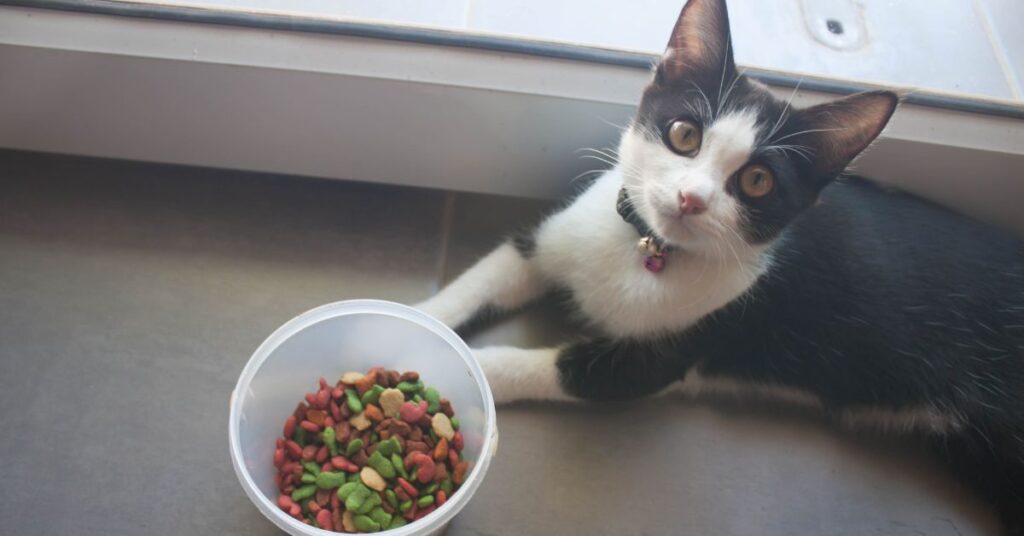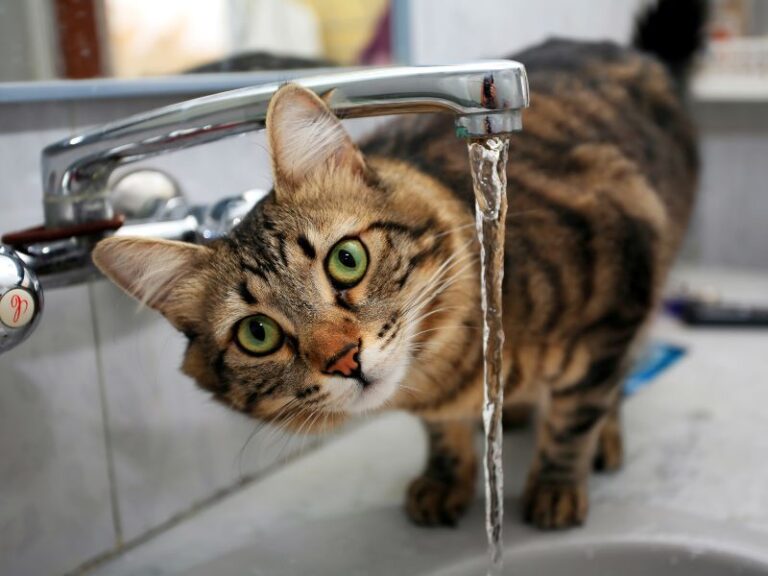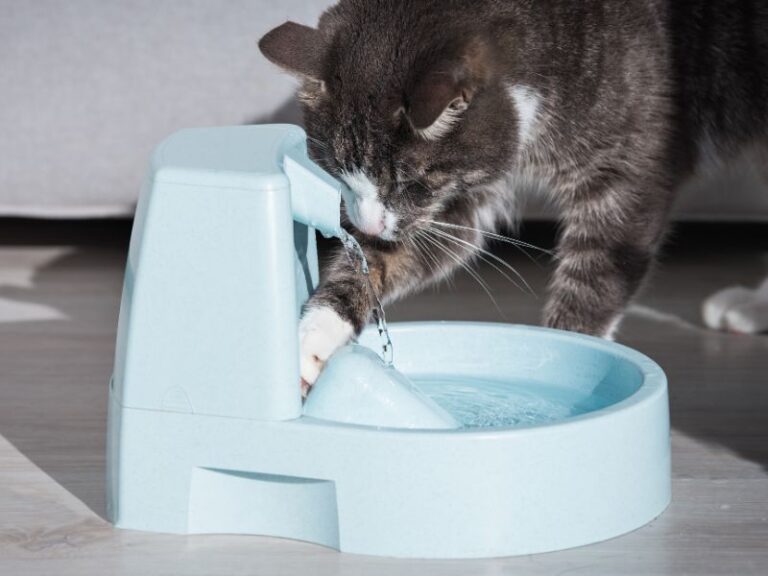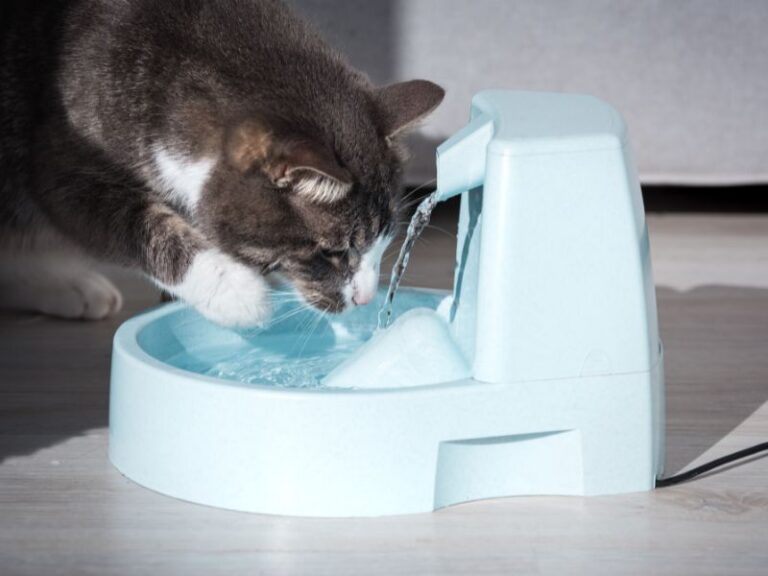Table of Contents
ToggleTaurine – it might sound like just another chemical compound, but for our feline friends, it’s nothing short of essential. As a cat owner, you’re probably well aware that these enigmatic creatures have unique dietary needs and quirks. Cat taurine happens to be at the heart of one of those feline peculiarities, and understanding it can make a world of difference in your cat’s health and happiness.
So, why should you care about cat taurine? Well, let’s put it simply: Taurine is to cats what oxygen is to us. It’s not an exaggeration; it’s a biological fact. Without an adequate supply of taurine in their diets, cats can face a range of health issues that can be both perplexing and distressing. From vision problems to heart complications, the consequences of cat taurine deficiency are real and potentially devastating.
In this article, we’re going to delve deep into the world of taurine and its pivotal role in the lives of our feline companions. We’ll explore what taurine is, why it’s so vital for cat health, and how you, as a caring cat owner, can ensure your furry friend gets the taurine they need. Whether you’re a seasoned cat enthusiast or a new cat parent, this information is not just informative; it’s indispensable.
So, fasten your seatbelt, put on your detective hat, and let’s embark on a journey to unravel the mystery of taurine and why it’s an absolute must-know topic for cat owners. Your cat’s well-being might just depend on it.
What is Cat Taurine?
Cat Taurine, at its core, is an amino acid. But not just any amino acid— it’s an amino acid with a special role in the world of cat nutrition. To understand why it’s so crucial, let’s take a closer look at what taurine is and how it’s structured.
Taurine’s Chemical Composition
Chemically speaking, taurine is often referred to as 2-aminoethanesulfonic acid. Now, I know that might sound complex, but bear with me; we’ll simplify it. Cat Taurine is made up of carbon, hydrogen, oxygen, and sulfur atoms arranged in a specific way. This unique structure sets it apart from other amino acids.
For cats, this seemingly unassuming compound plays a critical role in various physiological processes. Unlike humans and some other animals, cats can’t produce taurine in sufficient quantities within their bodies. They rely entirely on their diet to meet their taurine needs. This is why understanding the natural sources of cat taurine in food becomes pivotal.
Natural Occurrence in Various Foods
Taurine isn’t just a random nutrient; it’s a naturally occurring one found in a variety of animal tissues. This is where the connection between taurine and your cat’s diet comes into play. Cats, as obligate carnivores, have evolved to primarily feed on other animals. In doing so, they’ve developed a dietary dependence on taurine-rich foods.
Taurine is commonly found in
- Meat: Meat, particularly muscle meat, is a potent source of taurine. It’s abundant in various types of meat that cats might encounter in the wild or in their pet food.
- Fish: Fish, especially seafood like salmon and tuna, contains substantial amounts of taurine. This is why you’ll often find cat food labeled as “fish-flavored” or “seafood blend.”
- Organs: Organs such as the heart and liver are rich in cat taurine. In a natural feline diet, cats would consume these parts when hunting prey.
The Role of Taurine in Cat Health
Taurine may be just a small molecule, but its impact on a cat’s health is nothing short of monumental. In this section, we’ll explore the vital functions of taurine in a cat’s body and shed light on the dire consequences that can result from a deficiency.
Crucial Functions of Taurine
- Vision: Cat owners often marvel at their feline friend’s keen eyesight, and taurine plays a pivotal role in maintaining those sharp peepers. Taurine is involved in the development and function of the retina, the part of the eye responsible for capturing light and sending visual signals to the brain. Without adequate taurine, a cat’s vision can deteriorate, leading to issues like poor night vision and even blindness.
- Cardiac Health: A healthy heart is paramount for a cat’s well-being, and taurine is a cardiac superhero. It helps regulate heart rhythm and contractility. Without enough taurine, cats can develop heart problems, including dilated cardiomyopathy (DCM), a serious condition that can be fatal.
- Reproductive Health: Cat taurine also plays a role in reproduction. Female cats need sufficient taurine for successful pregnancies and healthy kittens. Taurine deficiency can lead to reproductive complications.
- Digestive Function: Taurine supports proper digestion by aiding in the production of bile salts. This helps cats digest and absorb dietary fats and fat-soluble vitamins.
Consequences of Taurine Deficiency in Felines
Taurine deficiency in cats can have devastating effects on their health. Here are some of the consequences:
- Vision Problems: As mentioned earlier, taurine deficiency can result in vision impairments, including night blindness and retinal degeneration.
- Cardiac Issues: Cats with taurine deficiency are at risk of developing heart conditions like DCM, which can lead to heart failure.
- Reproductive Complications: Taurine deficiency can cause problems during pregnancy and may result in stillbirths or weak, underdeveloped kittens.
- Gastrointestinal Troubles: Cats with insufficient taurine may experience digestive issues, including difficulty digesting fats and absorbing essential nutrients.
- Developmental Problems: Kittens born to mothers with taurine deficiency can face developmental delays and health challenges.
Taurine in Cat Diet
Understanding where taurine comes from in your cat’s diet is fundamental to ensuring their optimal health. In this section, we’ll delve into the dietary sources of taurine and the types of cat foods that provide this essential nutrient.
Dietary Sources of Taurine for Cats:
- Animal-Based Proteins: Cat taurine is primarily found in animal tissues. Therefore, a diet rich in animal-based proteins is the cornerstone of taurine intake for cats. This includes meats like chicken, turkey, beef, and lamb.
- Fish and Seafood: Fish, especially species like salmon and tuna, are excellent sources of taurine. Cats with a penchant for fish are naturally inclined to get their taurine from such sources.
- Organ Meats: Organs, such as the heart and liver, are concentrated sources of taurine. In the wild, cats often consume these parts of their prey.
- Commercial Cat Food: High-quality commercial cat foods are specifically formulated to meet a cat’s nutritional needs, including taurine. Reputable cat food brands incorporate taurine into their recipes, ensuring that your cat gets the required daily intake.
Types of Cat Foods that Contain Taurine:
- Dry Cat Food (Kibble): Many dry cat food formulas are enriched with taurine. When shopping for kibble, look for brands that explicitly state the inclusion of taurine in their ingredients list. This helps ensure your cat receives this vital nutrient, even if they primarily consume dry food.
- Canned Cat Food: Wet cat food, often found in cans or pouches, typically contains higher levels of taurine than dry food. It’s a great choice if you want to provide your cat with a moisture-rich diet while ensuring adequate taurine intake.
- Raw and Homemade Cat Diets: Some cat owners opt for raw or homemade diets. If you’re considering this route, it’s essential to consult with a veterinary nutritionist to ensure that your cat’s diet meets their taurine requirements. Homemade diets can be particularly tricky to balance correctly.
- Treats and Supplements: Taurine supplements and cat treats enriched with taurine are also available. These can be useful for ensuring your cat gets enough taurine, but they should be used under veterinary guidance to avoid over-supplementation.
Taurine Supplements for Cats
While ensuring your cat receives taurine through their diet is the ideal way to meet their nutritional needs, there are instances where taurine supplements can play a crucial role in feline health. In this section, we’ll explore the use of taurine supplements for cats, including when and why they might be necessary.
Use of Taurine Supplements for Cats:
- Correcting Deficiency: The most common use of cat taurine supplements is to correct a deficiency. If your cat has been diagnosed with taurine deficiency, your veterinarian may recommend supplements to restore their taurine levels to a healthy range.
- Underlying Health Issues: Cats with certain medical conditions, such as gastrointestinal disorders that affect nutrient absorption, may require taurine supplementation to ensure they get enough of this essential amino acid.
When and Why a Cat Might Need Supplementation:
- Medical Diagnosis: If your cat has been diagnosed with taurine deficiency through blood tests or clinical symptoms, your veterinarian will recommend taurine supplements as part of the treatment plan.
- Homemade Diets: If you prepare homemade cat food, it can be challenging to ensure your cat gets the precise taurine levels they need. A veterinary nutritionist can help formulate a balanced diet, and taurine supplements may be recommended to fill potential gaps.
- Pregnancy and Lactation: Pregnant and lactating cats have increased nutritional demands, including taurine. Your veterinarian may suggest taurine supplementation during these periods to support the health of both the mother and her kittens.
- Seniors and Kittens: Cats at the extremes of life, such as kittens and senior cats, may have varying taurine requirements. Your veterinarian can advise on whether supplementation is necessary based on your cat’s age and overall health.
- Illness Recovery: Cats recovering from certain illnesses or surgeries may benefit from taurine supplements to aid in healing and overall recovery.
Cat Taurine Requirements
Understanding the specific taurine requirements for your cat is essential to ensure they receive the right amount of this crucial nutrient. In this section, we’ll detail the recommended daily intake of taurine for cats and highlight variations in taurine requirements based on age and health.
Recommended Daily Intake of Taurine for Cats
The general guideline for taurine intake in cats is approximately 250 to 500 milligrams (mg) per day for a healthy adult cat. However, this can vary based on several factors, including a cat’s age, size, and activity level.
Variations in Taurine Requirements
- Kittens: Kittens have higher taurine requirements compared to adult cats. During their rapid growth and development stages, they may need around 400 to 500 mg of taurine per day to support the formation of healthy tissues, including the eyes and heart.
- Adult Cats: Healthy adult cats typically require around 250 to 500 mg of taurine daily to maintain their overall well-being. This range accounts for differences in activity levels and individual needs.
- Senior Cats: As cats age, their metabolism and nutritional requirements may change. Some senior cats may benefit from slightly increased taurine intake, especially if they have health conditions or reduced appetite.
- Pregnant and Nursing Cats: During pregnancy and lactation, a mother cat’s taurine requirements may increase significantly to support both her own health and the development of her kittens. Your veterinarian can provide specific recommendations based on your cat’s circumstances.
Relevant >>> How to Tell if a Cat Is Pregnant - Health Conditions: Cats with certain medical conditions, such as gastrointestinal disorders, may have difficulty absorbing taurine from their diet. In such cases, your veterinarian may recommend higher taurine intake or supplementation.
Taurine-Rich Foods for Cats
Ensuring that your cat’s diet includes natural taurine-rich foods is a proactive way to support their health. In this section, we’ll provide a list of such foods and offer tips on how to incorporate them into your cat’s diet.
Natural Taurine-Rich Foods for Cats
- Chicken: Chicken meat is an excellent source of taurine. You can offer your cat plain cooked chicken as a treat or part of their regular diet.
- Turkey: Turkey is another poultry option rich in taurine. It’s a great choice to add variety to your cat’s meals.
- Beef: Lean beef contains taurine and can be fed to your cat in moderation. Ensure it’s cooked thoroughly and doesn’t contain any seasoning or additives.
- Fish: Fish, particularly salmon and tuna, is known for its taurine content. Canned, cooked, or freeze-dried fish can be given as an occasional treat.
- Organ Meats: Hearts, liver, and kidneys from various animals are high in taurine. You can include small amounts of these organ meats in your cat’s diet. However, organ meats should be balanced with other proteins to avoid overconsumption of certain nutrients.
- Shellfish: Shrimp and other shellfish are sources of taurine that some cats enjoy. Ensure they are cooked and served without any spices or additives.
- Commercial Cat Food: High-quality commercial cat food, both dry and wet, is designed to meet a cat’s taurine needs. Look for reputable brands that list taurine as an ingredient on the label.
Tips on Incorporating Taurine-Rich Foods
- Variety is Key: Cats often appreciate variety in their diet. Rotate taurine-rich foods to prevent boredom and ensure a balanced intake of nutrients.
- Cooked and Unseasoned: When offering meat or fish to your cat, ensure it’s cooked thoroughly and free of spices, seasonings, or additives. Plain, unseasoned foods are best.
- Portion Control: While taurine-rich foods are essential, remember that balance is crucial. Ensure that taurine-rich foods are part of a well-rounded diet for your cat.
- Consult Your Veterinarian: If you’re planning significant changes to your cat’s diet or considering homemade cat food, consult your veterinarian or a veterinary nutritionist for guidance to ensure it meets your cat’s unique needs.
Ensuring a Taurine-Healthy Diet for Cats
Ensuring your cat receives an adequate amount of taurine is crucial for their overall well-being. In this section, we’ll discuss best practices for cat owners to guarantee that their feline companions maintain a taurine-healthy diet and dispel common misconceptions about taurine in cat nutrition.
Best Practices for Cat Owners
- High-Quality Commercial Cat Food: Choose high-quality commercial cat food that explicitly lists taurine as an ingredient. Reputable brands conduct rigorous testing to ensure their products meet feline nutritional needs.
- Variety in Protein Sources: Provide a variety of protein sources in your cat’s diet to ensure a broad spectrum of nutrients, including taurine. Rotate between poultry, red meat, and fish.
- Consult Your Veterinarian: Regular veterinary check-ups are essential to monitor your cat’s health. Discuss your cat’s diet with your veterinarian, and if you have concerns about taurine intake, seek their advice on supplementation or dietary adjustments.
- Homemade Diets with Caution: If you choose to prepare homemade cat food, consult a veterinary nutritionist to create a well-balanced diet that meets your cat’s specific taurine requirements. Homemade diets can be challenging to balance correctly.
- Avoid Taurine Myths: Beware of common misconceptions about taurine. Some believe that feeding dogs’ food to cats or vegetarian diets is acceptable – these practices can lead to taurine deficiency and health issues.
Common Misconceptions about Taurine in Cat Nutrition:
- Cats Are Just Small Dogs: This is a major misconception. Cats have unique nutritional requirements, including a need for taurine, which dogs do not share to the same extent.
- All Cat Food is Created Equal: Not all cat food is equal in quality. Some lower-quality brands may not provide adequate levels of taurine. Always read labels and choose brands with a good reputation.
- Raw Diets Guarantee Taurine: While raw diets can contain taurine, they are not automatically balanced. Taurine levels in homemade or raw diets can vary widely and may not meet your cat’s needs without careful planning.
- Cats Can Synthesize Taurine Like Humans: Unlike humans, cats cannot synthesize taurine in their bodies in sufficient amounts. They are entirely reliant on their diet for taurine intake.
- Taurine is Only for Heart Health: While taurine is crucial for cardiac health, it has other vital roles, including in vision and digestion. A lack of taurine can affect various systems in a cat’s body.
Final Words
In conclusion, taurine isn’t merely a dietary component for cats; it’s a fundamental cornerstone of their health and well-being. This unassuming amino acid orchestrates critical functions, from maintaining keen eyesight to safeguarding the heart’s rhythm. As responsible cat owners, our commitment to prioritizing taurine in our pets’ diets is an essential act of love and care. By ensuring that our feline friends receive the right amount of taurine through a balanced and varied diet, we empower them to lead healthy, vibrant lives. Remember, your cat’s health is a journey, and taurine is a vital companion on that path to their long-lasting happiness and vitality.






